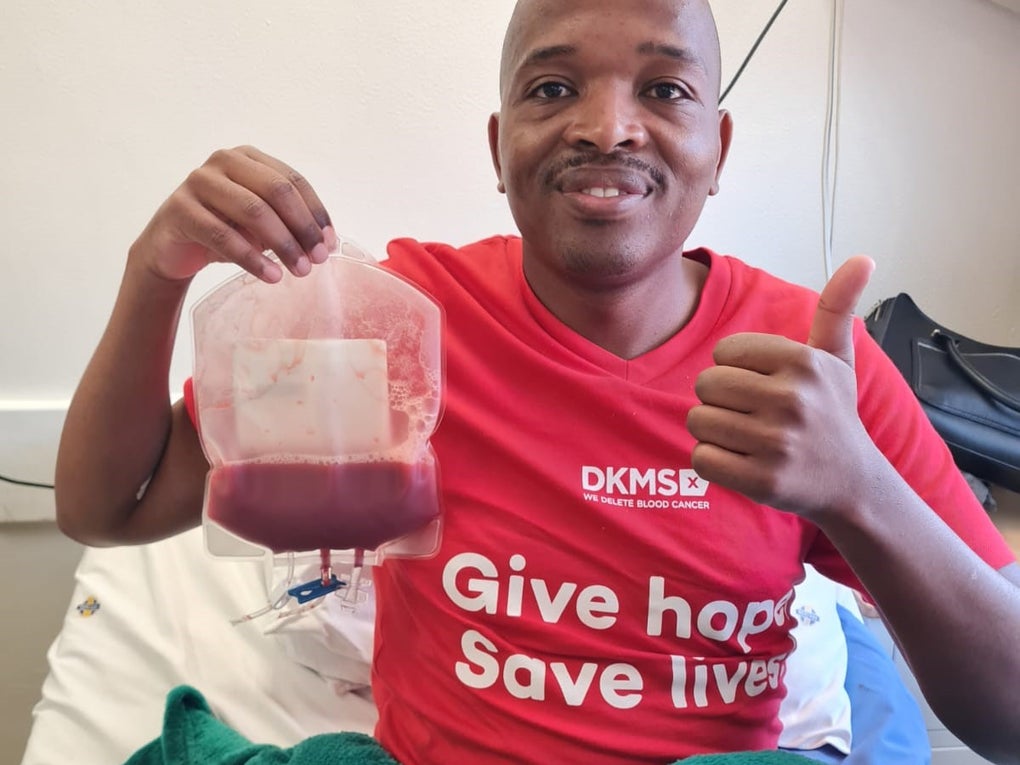
Busting the Myths Preventing South Africans from Saving Lives
Cape Town, November 7, 2023 – Blood stem cell transplantation from a matching donor has the power to save the lives of blood cancer patients with success rates of between 72% and 92% depending on the type of cancer treated. However, myths and misconceptions often prevent people from becoming donors. In South Africa, where the need for ethnically diverse donors is crucial, dispelling these becomes even more critical.
This is according to Kedibone Zulu, DKMS Africa Team Leader Gauteng: Patient Services and Donor Recruitment, who explains that transplantation success is significantly influenced by the compatibility of Human Leukocyte Antigen (HLA) characteristics between the donor and the patient. “The best chance of finding a matching donor often lies within the same ethnic group. South Africa's rich tapestry of racial backgrounds necessitates a diverse registry of donors, particularly among Black, Coloured, Indian, and Asian communities.”
Given that only 0.04% of the population is registered as blood stem cell donors and only 10% of these donors are ethnically diverse, she implores South Africans to make informed decisions about the donation process before deciding against it. “It’s crucial for South Africans to educate themselves and, more importantly, to act. Simply registering as a potential donor can be a beacon of hope for those desperately in need of a life-saving transplant.”
Myths about blood stem cell donation do vary, but Zulu elaborates on some of the most common misconceptions she has encountered from potential donors:
Myth: The donation will cost me money.
Fact: DKMS covers all donor related costs. This includes all tests needed to enable the donor to donate, including blood and other wellness tests, trips to all medical facilities, including accidental insurance.
Myth: I cannot register if I am on medication for depression.
Fact. It is possible to register if you are experiencing mild depression, receiving treatment for a limited amount of time and are feeling well enough to manage everyday life. As some psychotropic drugs can cause changes in the blood stem cell count, it is important to report which medications you are on when you register.
Myth: After I donate, I will be missing stem cells.
Fact: Approximately six weeks after the donation, the body regenerates its blood stem cells back to the level they were before. The process is comparable to a blood donation where the body replenishes itself and does not lead to a permanent loss of blood stem cells. Additionally, the donor’s own immune system will not be weakened.
Myth: I cannot register if I use cannabis.
Fact: Occasional marijuana/cannabis consumption is not an issue – although the emphasis is on the word ‘occasional’. This is, in part, due to regular drug use raising the question of the reliability of the donor. A dependable donor is crucial since the timing and scheduling of blood stem cell donations and transplants is critical to the survival chances of the patient. For you to register, we need to know what drugs you take and for how long you have been taking them. If you have been consuming them for a long time, it might be better not to register, but if you are ready and able to quit, then you are welcome to sign up as a potential blood stem cell donor.
Myth: I won’t be able to back out of making a donation.
Fact: If you’ve been identified as a match for a patient, you can withdraw from making a donation, but this should ideally be done before the doctors have initiated the patient’s preparation for the transplant. We will respect your decision, regardless of the reason.
Zulu concludes by saying, “The power to save lives through blood stem cell donation lies in the hands of a diverse and informed nation. By debunking myths and increasing awareness, we can build a more inclusive donor registry, ensuring that every patient has a fighting chance at life. Knowledge is power and can inspire others to act.”
If you are between the ages of 17-55 years old and in general good health, please register to become a blood stem cell donor via https://www.dkms-africa.org/register-now. Registration is completely free and takes less than five minutes to complete.
For more information, contact DKMS Africa on 0800 12 10 82.